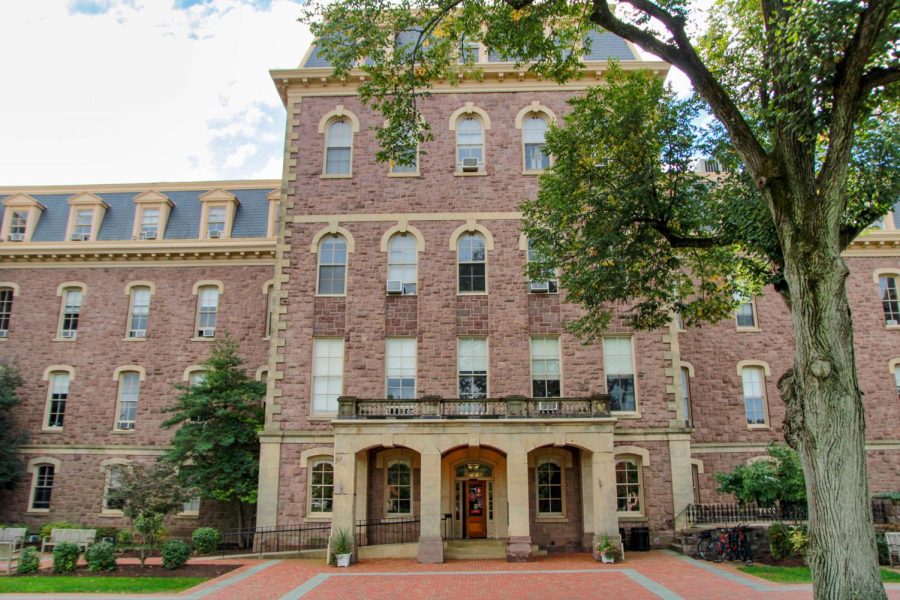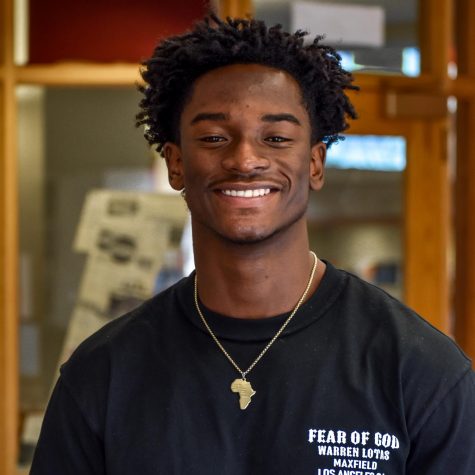Non-tenured professors, despite their contributions to the campus community, have long struggled with visibility within academia. From low pay to a lack of recognition, the burden put on contingent professors has grown. Now, they are taking action.
At Lafayette, over 140 of the roughly 230 tenured and non-tenured professors have joined together to sign a letter from the Contingent Faculty Working Group to the administration (CFWG), dedicated to bettering the job environment and compensation of those at Lafayette not on a tenure track.
“We don’t want the precarity of our positions to be exploited, and like all faculty and staff, we want our labor to be acknowledged, valued, and compensated fairly,” a March 7 letter sent to President Nicole Hurd by CFWG stated.
“[The CFWG] was an honest attempt for folks to share our experiences and think about ways that we might be able to change the system for the better…and really try to bring the attention to our colleagues as well as the administration,” Visiting Assistant Professor of International Affairs Cory Fischer-Hoffman said.
Tenure-line faculty are expected to complete a two-three course load—teaching two courses one semester and three courses another. They also must conduct research and provide service to the Lafayette community through committee work and advising students. In contrast, non-tenured visiting professors are expected to complete at least a three-three course load, with some overloading and teaching up to five sections a semester.
Multiple faculty members expressed the need to keep up with research and service in order to stay viable in the academic job market and support students in their academic pursuits. While non-tenured professors’ job descriptions do not require completing research or service, many feel as though these two aspects are obligatory despite the fact that their compensation or teaching load does not account for this additional work.
“With such an intense job market, you have to keep up your research,” Visiting Assistant Professor of Environmental Studies Paul Guernsey said. “So visitors, especially because they’re still on the job market, have to keep that up. But it’s very difficult when you’re teaching a three-three.”
Guernsey added that the service, time and energy he loves to provide to students is not valued as much as that of tenure track professors.
“I still feel that my time is devalued in a lot of ways because a lot of the work I do is not even recognized by the college as work,” Guernsey said. “It’s thought that visitors don’t do service work. And service work includes developing curriculum, which I’ve definitely done…It also includes advising students…I still advise students from my office all the time.”
Visiting Assistant Professor of Computer Science Jonathan Dahl has been teaching at Lafayette since 2013, each year on a one-year contract. This year, he has a three-four course load, not including a lab section—an overload due to the understaffing of his department.
“I’ve been more reluctant to work with students outside of courses just because there’s not much time,” Dahl said. “Years where I’ve been on the three-three, I’ve had more flexibility to work with students.”
Many visiting assistant professors also voiced their concerns regarding the culture of Lafayette. Due to their inability to vote or serve on faculty committees, non-tenure-track professors often feel underappreciated within the larger community.
One visiting assistant professor recalled her trouble with feeling unseen within her non-tenured position. She wished to remain anonymous due to the potential risk to her job security.
“Since you are not someone that’s going to spend a long time here…people see you as someone that’s temporary,” she said. “So the depersonalization of the faculty I think it’s a big issue because I sometimes was not being seen as a person, but as someone that is replacing something.”
While Visiting Assistant Professor of Women’s, Gender and Sexuality Studies Tara Gilligan, who has spent much of her time at the college switching back and forth between a visiting role and an adjunct role, has felt supported by her department, she said that she does not feel the same support from the college.
“My work has not been adequately supported by the college; the [visiting assistant professor] role has provided benefits and decent pay, but it is always temporary,” Gilligan wrote in an email. “In my semesters teaching as an adjunct, I take a deep pay cut and lose all benefits.”
One area of frustration agreed upon by many faculty is the low pay for adjunct faculty. Part-time professors who teach one or two classes a semester get paid $4,250 per course taught with no benefits, according to Gilligan.
“We continue to work for an increase in the unbearably low and insufficient wages of adjunct professors who are currently paid between four thousand dollars and forty-five hundred dollars to teach a class,” Fischer-Hoffman said. “One Lafayette student who is paying full tuition is paying over six thousand dollars to sit in that classroom.”
“I have loved every aspect of teaching at Lafayette, from curriculum development to interacting with the amazingly intelligent students,” Adjunct Professor Lyssa Gagnon wrote in an email. “Unfortunately, I will not be returning to teach this course next year simply because the pay is insufficient. While Lafayette has been a lovely place to work, the realities of salary in life often prevail.”
The CFWG is not being left unheard. One of its main objectives is increased stability for professors consistently on one-year contracts. A subcommittee of the Faculty Academic Policy Committee (FAP) has been working on a proposal that will introduce a new faculty position. This new position, referred to as “instructor,” will be a non-tenured, full-time teaching position that operates with longer contracts of around three years. There are tentative plans for a faculty vote over this proposal in May.
According to the minutes from a FAP meeting this past semester regarding the research they conducted on this position, “all but one institution in Lafayette College’s aspirational peer group (Harvey Mudd) appear to have long-term contingent faculty positions.”
“[Short contracts] aren’t good for the people because they have uncertainty; it is not good for the department because the department has uncertainty, so for stability for everybody, this would be a good thing,” Associate Professor of Engineering Studies and Chair of the subcommittee Kristen Sanford said.
Some tenured professors have also expressed their support for the difficulties facing contingent faculty members.
“We definitely have a system that’s very unequal where people like me who are in the tenure-line are teaching fewer classes, and I have more autonomy over which classes I get to teach,” Associate Professor of Anthropology and Sociology Neha Vora said.
“I think the support that we’ve mostly seen has been through the signing on to the letter and a lot of individual emails and encouragement,” Fischer-Hoffman said. “And so I think there really is a growing understanding of solidarity across ranks on this campus.”
Associate Professor of Religious Studies Jessica Carr, who also sits on FAP, said that one of the most difficult decisions is deciding how to balance letting contingent faculty feel welcomed and heard without overburdening them.
“The question is…where do we draw a line?” Carr said.
To show their support, faculty will hold a solidarity picnic on the Quad on May 2 at 12:15 p.m.
The administration acknowledged the CFWG and its goals. After the letter was received, the administration worked with the group to give all faculty a four percent merit raise for their next contract regardless of their tenure status.
“I’m in solidarity. And so are John [Meier, Provost] and Craig [Becker, Associate Vice President of Financial Planning] and the rest of my administration on almost every single one of these points,” Hurd said. “It doesn’t take a petition for us to have a conversation.”
With such broad support, Fischer-Hoffman is confident that the goals of the CFWG will be realized and the inequity towards contingent faculty will end.
“Collective action across rank is really a way to win and make these kinds of changes,” Fischer-Hoffman said.
Correction 4/24/2022: A previous version of this article said that 140 faculty members were a member of the CWFG. Instead, over 140 faculty members signed the letter, signifying their support for the CFWG. It also referred to visiting assistant professors as “visiting professors.” The article also misspelled Professor Fischer-Hoffman’s first name.





























































































































Jacob Potter, '23 • Apr 22, 2022 at 8:48 am
Good faculty members pay the greatest dividends towards the College’s integrity, competitiveness, and future success. It pains me to learn of the embarrassingly insufficient pay for adjunct faculty. Some of the most inspiring and skilled instructors I’ve had the honor to learn under the past three years have been adjunct and visiting faculty. I hope the CFWG continues to make their voices heard, and students are kept in-the-loop about these developments.